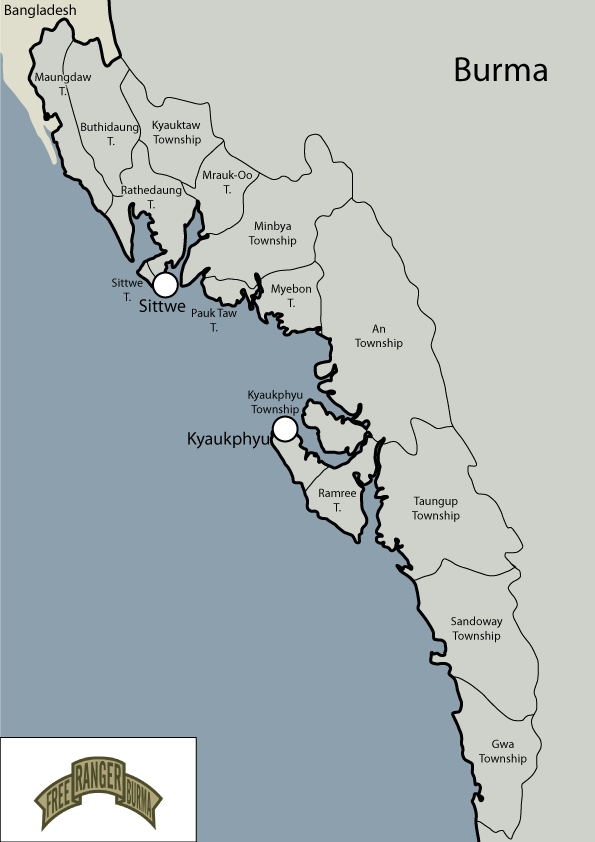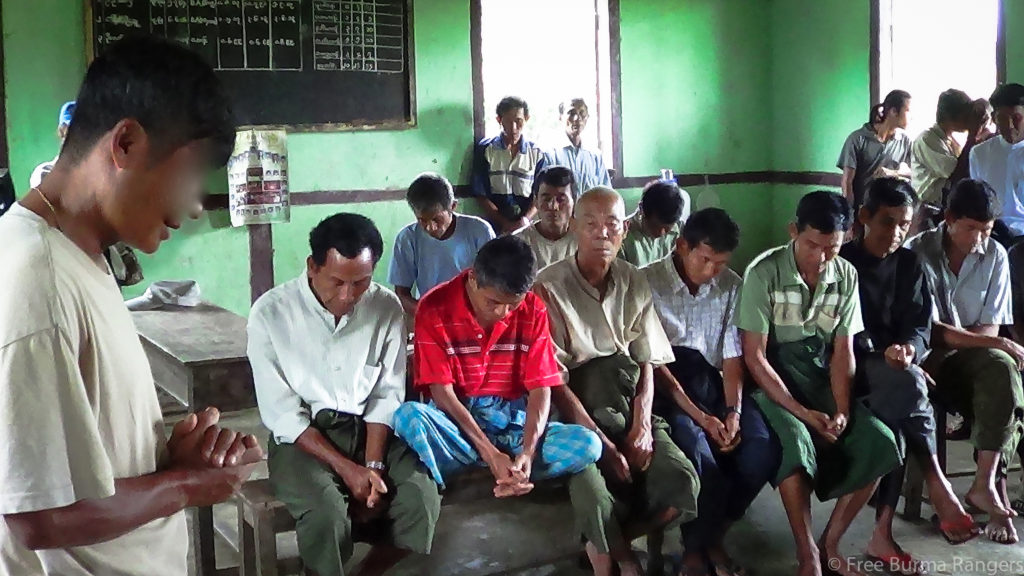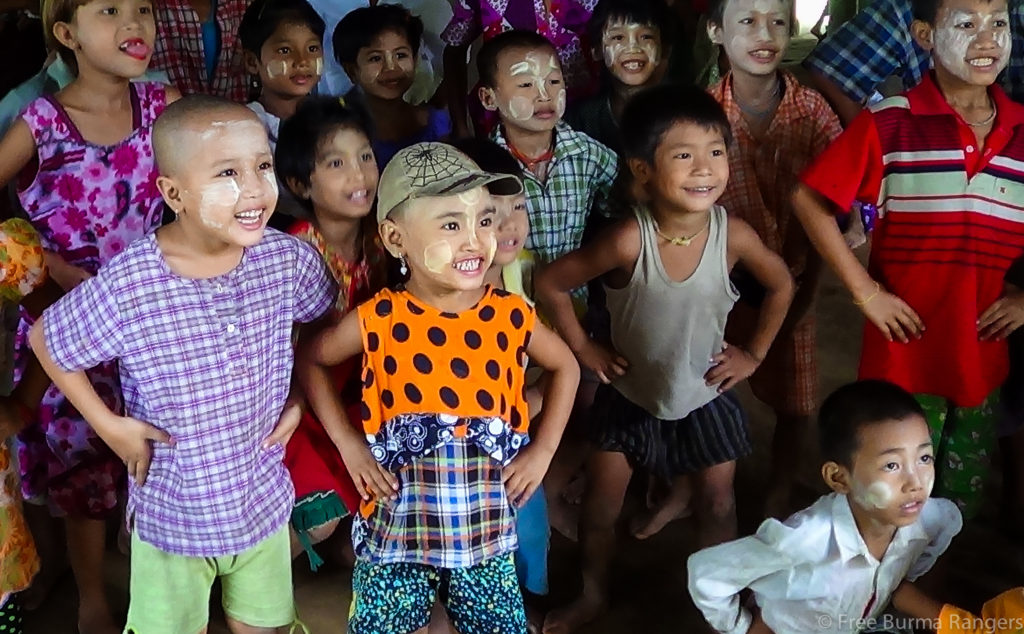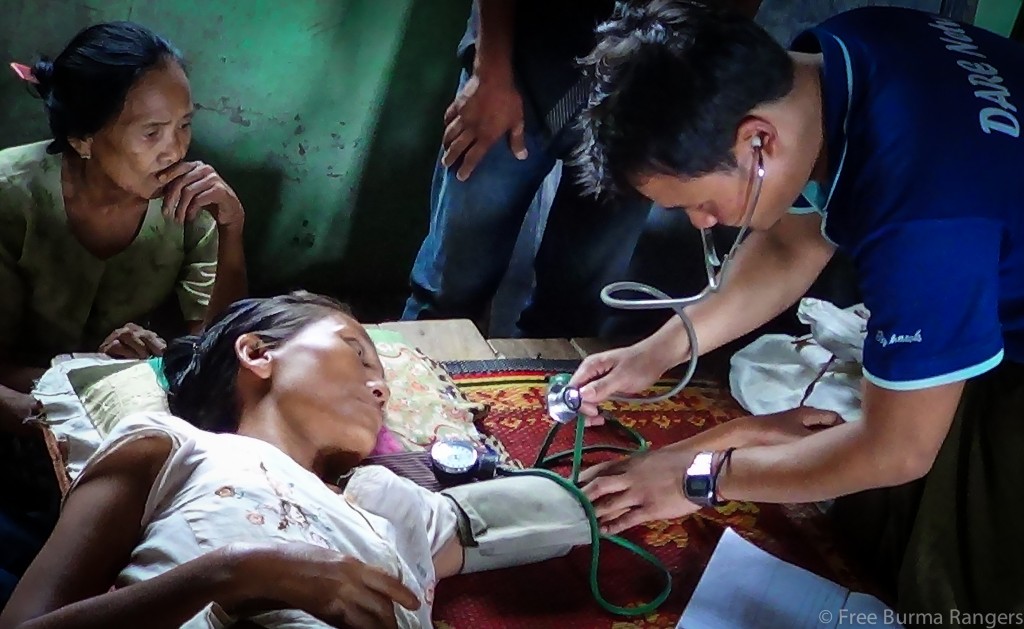Multi-Ethnic Relief Team Completes Relief Mission in Arakan State
5 November 2013 Arakan State, Burma
In August 2013, a multi-ethnic FBR headquarters team conducted a relief mission in several villages in Arakan State. Our relief teams wanted to go to areas they had not been to before, and gain a deeper understanding of the situation there. They traveled to remote ethnic Arakan areas that receive little outside attention. Once there, teams provided medical care, encouragement and support, and performed a needs assessment.

The rangers saw the poor living conditions that many in northwestern Arakan State have been enduring for quite some time – surviving with very little, and working hard even for the little food and supplies they do acquire. Many work as farmers or fisherman.
The people in these communities have long suffered under the rule of the military regime in Burma, though they are not Internally Displaced Persons (IDPs). The villagers are afraid of the Burma Army; they have been forced to give up their possessions for Burma Army soldiers in the past, and have been punished for their association with the Arakan Liberation Party (ALP – an Arakan pro-democracy ethnic resistance organization).
The education situation is precarious: each of the four villages that the teams visited has a primary school; only one has a high school. Very few students are able to finish high school, often dropping out of their studies to provide their parents and family with supplemental income and assistance with work.

The health and sanitation situation in these four villages is poor, and there are no clinics in any of the villages. If a villager becomes ill, they must go to a larger town for medical care, and the treatments are often more than villagers can afford. One village headman spoke of his experience with a government-run hospital: “I have attended the village health worker training, and knew that in this current time much help has come and a lot of medicine came freely to the government hospital. But when my son was in the hospital, the doctors and nurses just give me the name of the medicine for the treatment and asked me to buy from somewhere else. After I gave the medicine I bought on my own, they treated my son. I had to sign a paper saying that I received the treatment and medicine from them. I knew other villagers have faced the same thing.”
Our medical teams provided care for many different ailments, ranging from the common cold to hypertension; few malaria cases were observed. FBR medics treated over 1,041 patients in these four villages. The most common illnesses were joint pain, stomach pain and anemia.

The rangers are thankful for this opportunity to serve in a new part of Arakan State, and for the chance to learn more about the needs in this part of western Burma. The team leader on this mission shared the following testimony of what he learned about forgiveness and prayer:
“Dear friends,
I want to share this experience with you.
When I was young, my parents taught me to pray for my enemies, and that it would be like putting coals of fire upon their head. I never understood that.
I prayed for my enemies, but my heart was not clear. I felt hate for what they had done to me or to others, and hated them even when praying for them. I did not know how it could be right to pray for them, or the right way to pray for them. I did experience something when I prayed for my enemies, to receive fire on their head: the answer I received was fire on my head first instead. I did not give up and still prayed for them, but was not sure whether my heart or my feelings were clear or not. I thought “NO,” it was still not clear.
I experienced something different about prayer for our enemy during this last mission to Arakan State. When we visited villages, we felt very bad for the people receiving us. They really needed our help, as we were trying to give them medical care, but they were afraid of what would happen to them after we left their village. Their background story was that some of their children had joined the resistance group. Later, the BA came to their villages, questioned them and tortured them. Some were so damaged that they’ve suffered through long medical treatment, and some died because of the Burma Army’s torture. And so they were still afraid of that. They dared not receive our help and we left their village, as we could not stay there.
A group of villagers stood, watching our backs as we walked away from their village. We could read in their eyes their feeling that they were losing something that was in their hand, that was very valuable and needed by them, but that they also dared not receive it, because of the fear. We felt very bad and prayed in our heart as we walked away: “Lord, we have made the villagers feel worse, though we only wanted to help. We want to solve this but we cannot do anything. Please give us a chance and help us to do something.”
When we arrived to the next village, we found the headman of the village we had just left visiting this village headman. We talked to both of them about what we had planned. Both were afraid to receive us. They talked to each other, and our Arakan FBR team talked with them in Arakan language, for over an hour; finally they agreed to receive us.
We went back to the village we had left the next morning to give medical care. A lot of the people came for the program but their faces were still afraid and their eyes were full of fear. It made me feel worse. We learned that they were living in a big village but were still poor. Worse than poverty was the oppressive fear that was torturing them all the time. Whatever they did was lead by fear.
We were feeling very bad for them as we started to pray for the program. We didn’t think of judging anyone. We only thought of how they needed help and how to clear the fear away from them. The leaders of the Burma Government are some of the people most responsible and able to help. We deeply focused on the people’s needs and prayed for the government. We really forgot about the evil things that government had done and felt that nothing was bigger than the people’s need in that moment. We prayed that God would open the hearts of the leaders for love, and open their eyes for seeing their people’s needs, and their minds for building up the people and the country as other countries have developed. I felt that my heart was very clear when I prayed then. No hate. No blame.
After we prayed, we started the GLC program. We sang with the children. We sang the songs with actions and the children sang and laughed at the others making mistakes. As the children laughed louder and louder, the parents came, and joined, step by step. Later, all the children and parents were laughing together. No more fear was in their faces. In this moment we felt like this was God’s presence. God was healing their fear.
Honestly, I haven’t focused on GLC programs before. I mostly run around and put more focus on getting information. This time, as I had to lead the GLC program, I found something meaningful in it. Even when we thought we did not do much, at least we could ease someone’s heart. Even if it was only a minute, or an hour, we were helping them to relax in their mind, to be free from fear, sorrow, worry. This is our mission: “free the oppressed” – physically and spiritually.
I thank God for opening my heart step by step to see what He wanted me to do and to understand His ministry. Thank you very much for supporting us to do what we need to do, and praying for us.
God bless you, ‘Monkey’, a FBR team leader, pastor and video man.”
May God bless you,
FBR Headquarters Team
